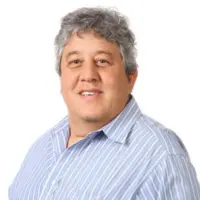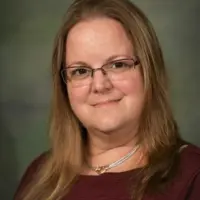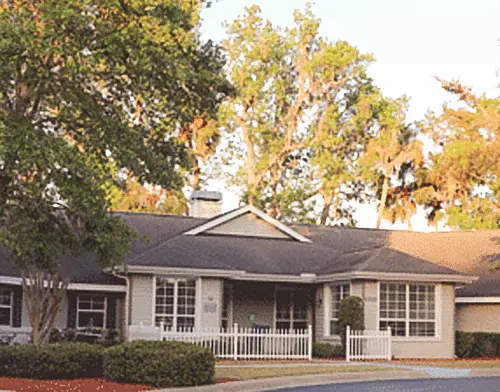About Promises Five Palms
If you need to detox prior to even joining one of their programs, they’ve got you covered there, too, with their medication assisted treatment (MAT) options. Supervised and administered by their team of medical professionals, they may use medications such as Suboxone or Vivitrol in order to help reduce your withdrawal symptoms when detoxing. It can also reduce cravings, which can help prevent any early relapse.
They offer a great range of levels of care, including residential care, partial hospitalization care (PHP), intensive outpatient care (IOP), and regular outpatient care (OP), which requires the least commitment. Their residential program is gender-specific. This is a great variety because it shows that they understand everyone has different needs and different commitment levels, and some people may have outside obligations that would prevent them from being able to commit to a residential program.
Outpatient programs let you leave back home after the sessions are over, whereas residential care requires you to live at their facility for a period of time. Many of these residential facilities are gorgeous, however, and offer some really cool amenities.
Some of their modalities of treatment include cognitive behavioral therapy (CBT), dialectical behavior therapy (DBT), individual and group therapy, and family counseling.
Facility Overview
Latest Reviews
Rehab Score
Location
Accepted Insurance
Other Forms of Payment
Private insurance refers to any kind of healthcare coverage that isn't from the state or federal government. This includes individual and family plans offered by an employer or purchased from the Insurance Marketplace. Every plan will have different requirements and out of pocket costs so be sure to get the full details before you start treatment.
Self-pay involves paying for treatment out of your own pocket. You can use savings or credit, get a personal loan, or receive help from family and friends to fund your treatment. If you don't have insurance or your insurance plan doesn't cover a specific program, self-pay can help ensure you still get the care you need.
Medicare is a federal program that provides health insurance for those 65 and older. It also serves people under 65 with chronic and disabling health challenges. To use Medicare for addiction treatment you need to find a program that accepts Medicare and is in network with your plan. Out of pocket costs and preauthorization requirements vary, so always check with your provider.
Military members, veterans, and eligible dependents have access to specific insurance programs that help them get the care they need. TRICARE and VA insurance can help you access low cost or no cost addiction and mental health treatment. Programs that accept military insurance often have targeted treatment focused on the unique challenges military members, veterans, and their families face.
Medicaid is a state based program that helps lower-income individuals and families pay for healthcare. Medicaid covers addiction treatment so those enrolled can use their coverage to pay for rehab. When a program accepts Medicaid the client often pays very little or nothing out of their own pocket.
Addiction Treatments
Levels of Care
Outpatient rehabs encompass multiple levels of care to facilitate clients' progress through their recovery journey. Clients who are stepping down from inpatient treatment may require intensive outpatient (IOP) treatment, which involves more frequent and substantive therapeutic interventions than does standard outpatient care. Outpatient centers typically provide extensive addiction counseling, including individual, group, and family therapy. Medication assisted treatment programs (MAT) and recovery-focused life skills training are also common in outpatient care.
Promises Five Palms provides inpatient mental health treatment. Facilities are home-like and welcoming. During the day, clients participate in therapy groups, individual counseling and recovery activities. In the evenings, they retire to private bedrooms with comfortable furnishings and pleasing decor.
Intensive outpatient programs (IOP) involve frequent and robust therapeutic sessions for clients requiring high-level care. Clients may engage in a combination of medication assisted treatment (MAT), addiction counseling, recovery skills training, and holistic therapies for a minimum of nine and a maximum of 20 hours per week. Intensive outpatient rehab is designed primarily for persons in early recovery, those exiting detox or inpatient care, and those at an elevated relapse risk.
Rehab aftercare programs are a collection of highly individualized services designed to promote long-term recovery. These services evolve as your needs change. Case managers and recovery teams typically begin formulating the rehab aftercare service plan early in the recovery process to facilitate your reintegration back into the home, workplace, and community.
12 step programs support recovery through emotional, psychological, and spiritual development to address the root causes of addiction. These programs are peer directed, with participants regularly attending 12 step meetings, which are anonymous, free, and accessible day and night, year-round. Recovery is based on "working the steps" to understand the source of addiction, take accountability for one's life choices, and relinquish control for that which cannot be changed. Age-specific, gender-separate, and other specialized programs are widely available.
A sober living home in Florida often serves as a transitional residence for individuals coming out of inpatient rehab. This helps those in recovery avoid isolation that can sometimes happen after they return home from treatment. It offers a supportive environment where they can practice skills learned in rehab. Offering a combination of structure and freedom, men's or women's sober living is a good stepping stone to independent life in recovery.
If a person with a substance use disorder continually denies their problem or refuses to get treatment, a drug intervention in Florida may be necessary. Intervention services can help mediate the intervention by providing an addiction expert. This professional can de-escalate situations and facilitate a healthier discussion between the individual and their loved ones. Specialists can also help families handle issues they don't know how to navigate on their own.
Often referred to as "day treatment," a partial hospitalization program (PHP) offers an intensive treatment option that allows individuals to return home at night. PHP treatment typically requires a minimum of 20 hours a week for an average of 90 days. Participants attend daily therapeutic sessions, receive medication management, and have access to skilled medical professionals. While costs can vary, most insurance will fully or partially cover a partial hospitalization program.
24-hour clinical care in Florida is an essential part of treatment, particularly with medical detox. Withdrawal symptoms can be severe, and supervised detox provides around the clock access to medical professionals who can adminsiter proper medications and treatment to address these symptoms and step in should an emergency occur. This intensive clinical care will help curb the withdrawal effects, minimize substance dependence, and prepare you for the next step of treatment.
The first step of the recovery process involves the removal of all drugs and alcohol from your system while under 24/7 medical supervision. Known as a medically assisted detox, you are closely monitored by medical staff who can provide medications, if necessary, to help alleviate any potential withdrawal symptoms. Medical detox is usually followed by a period of inpatient addiction treatment.
Treatments
Many people with mental health disorders self-medicate their symptoms with drugs and alcohol. Promises Five Palms helps people with mental health conditions manage their symptoms so their less likely to feel the need to engage in destructive behaviors. They offer addiction workshops and support groups.
Promises Five Palms treats clients with a primary mental health diagnosis. These include conditions such as depression, anxiety, trauma, personality disorders and bipolar disorder. The treatment facility also treats clients struggling with drug and alcohol abuse as a secondary diagnosis.
Programs
Men and women with primary mental health disorders
Young adulthood can be an exciting, yet difficult, time of transition. Individuals in their late teens to mid-20s face unique stressors related to school, jobs, families, and social circles, which can lead to a rise in substance use. Rehab centers with dedicated young adult programs will include activities and amenities that cater to this age group, with an emphasis on specialized counseling, peer socialization, and ongoing aftercare.
Recovery is most successful when clients feel accepted and validated by their peers and treatment providers. Facilities that offer LGBTQ-inclusive programming are committed to creating a safe space where everyone can grow and recover without fear of judgment or discrimination. They will have dedicated policies in place to create a safe and supportive environment that fosters free expression.
Serving in the military is both mentally and physically challenging, and can result in trauma that persists even after combat ends. Military programs are tailored to the specific and often complex needs of active duty personnel, veterans, and military families. Clients often access these programs through the U.S. Department of Veterans Affairs (VA).
Clinical Services
Cognitive Behavioral Therapy (CBT) is a therapy modality that focuses on the relationship between one's thoughts, feelings, and behaviors. It is used to establish and allow for healthy responses to thoughts and feelings (instead of unhealthy responses, like using drugs or alcohol). CBT has been proven effective for recovering addicts of all kinds, and is used to strengthen a patient's own self-awareness and ability to self-regulate. This is a short term, goal oriented treatment to take a hands-on approach to problem solving. The goal is to change patterns of thinking or behavior to change how they feel.
Certain situations can increase hypervigilance and arousal for the patient far more quickly than the average person’s, and take a significant amount of time for the patient to return to baseline. DBT is a Cognitive-behavioral approach that helps the patient react in a less intense manner toward certain emotional situations, primarily those found in romantic, family, and friend relationships.
Group therapy is an important part of Promises Five Palms' treatment approach. Clients often find sharing with peers who share similar struggles to be a transformative experience. Group therapy helps clients learn better communication skills and ways of relating to other people. They also gain new insights into themselves and learn healthy coping skills.
Clients meet one-on-one with a therapist to address issues that are contributing to mental health symptoms. Often these include trauma, difficult relationships, low self-esteem, unhealthy thinking patterns and beliefs, poor coping skills and destructive behaviors.
As a short term therapeutic method, motivational interviewing in Florida requires only a couple of sessions. During these sessions, you'll have the opportunity to talk about your circumstances and any discrepancies between your current situation and future goals. You'll then decide for yourself what changes you want to make.
Trauma therapy addresses traumatic incidents from a client's past that are likely affecting their present-day experience. Trauma sometimes stems from child sexual abuse, domestic violence, having a parent with a mental illness, losing one or both parents at a young age, teenage or adult sexual assault, or any number of other factors. Trauma therapies help clients process trauma and move through and past it, with the help of specially trained mental health professionals. Promises Five Palms' treatment team is trained in trauma therapies such as: Eye Movement Desensitization Reprocessing Therapy (EMDR), Prolonged Exposure Therapy (PET), Accelerated Resolution Therapy (ART), Traumatic Incident Reduction (TIR) and Cognitive Processing Therapy (CPT).
During family therapy sessions, you navigate the complexities of addiction and are provided tools to help improve communication and resolve conflicts. When you work together, families can better support their loved one's recovery and restore balance and harmony within the household.
Life skills are the core skills you need for daily success. They can include self care, stress management, daily routines, and emotion control. Rehab treatment includes the development of these skills so you have the tools you need for long term recovery.
Substance abuse creates biochemical imbalances in your body and brain. By implementing dietary changes, you can restore that balance. This is the goal of nutrition therapy in Florida. You'll gain an understanding of what nutrients your body needs and learn best self care practices.
Types of creative arts therapy in Florida include playing music, writing poetry, journaling, dancing, painting, and sculpting. These expressive activities can help you process emotions and work through challenges with the guidance of a creative arts therapist.
Promises Five Palms offers experiential therapies like yoga, mindfulness and creative approaches that help clients address issues in ways beyond talk therapy.
Amenities
-
Private Transportation
-
Residential Setting
-
Private Rooms
Staff & Accreditations
Staff

Dr. Laurie Deckard
CEO

Levi Kahane, MD
Medical Director

David Heise, MD
Medical Provider

Wendy Pesek, BSN, RN
Director of Nursing

Cassie Voller
Operations Manager
Accreditations

The Substance Abuse and Mental Health Services Administration (SAMHSA) is a branch of the U.S. Department of Health and Human Services. Established in 1992 by congress, SAMHSA's mission is to reduce the impact of substance abuse and mental illness on American's communities.
SAMHSA Listed: Yes

LegitScript has reviewed Promises Five Palms as part of their certification program, and has determined that it meets the LegitScript standards for legality, safety and transparency.
LegitScript verified in June2024

The Joint Commission, formerly known as JCAHO, is a nonprofit organization that accredits rehab organizations and programs. Founded in 1951, the Joint Commision's mission is to improve the quality of patient care and demonstrating the quality of patient care.
Joint Commission Accreditation: Yes
Contact Information
515 Tomoka Avenue
Ormond Beach, FL 32174





